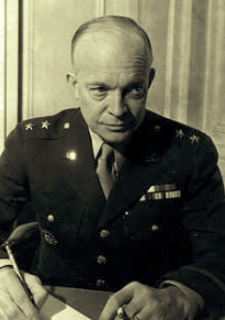
To Robert Satloff’s essay in Mosaic comes a response from Michael Doran. Satloff had argued that the US has minimised the liberation of North Africa beginning with Operation Torch in 1942 out of misplaced fear of association with Jews. Such fear was to be a cornerstone of American foreign policy engagement. Doran argues that US diplomats had other reasons for being antisemitic. As descendants of Protestant missionaries, they viewed Zionism as a threat.
During Operation Torch, as Satloff so admirably demonstrates, Eisenhower and his associates feared that, if they drew too close to the North African Jews, the Arabs would revolt, tying down forces that were badly needed elsewhere. By the 1950s, this idea had grown into a more general principle. If the foreign-policy elite in the 1950s was certain of one thing about the Middle East, it was that a close association of the United States with Israel and the Jews would provoke the Arabs, driving them into the arms of the Soviet Union. A primary strategic goal of the Eisenhower presidency, therefore, was to prove to the Arabs that America was not in Israel’s pocket.
But when and how did Eisenhower and the others acquire this oversized fear of association with Jews? Satloff suggests that it was “a gift” from the Vichy authorities in North Africa, who transferred their homegrown theory of Arab-Jewish relations to men like (the diplomatic troubleshooter) Robert Murphy. In my own view, it would be more plausible to conclude that the Americans were receptive to the Vichy perspective because they had already, independently, developed a fear of association with Jews. Old-fashioned anti-Semitism certainly played a role. While at the Casablanca Conference of the Allies in 1943, President Roosevelt demonstrated a breezy indifference to the persecution of North African Jews.
 |
| General Eisenhower |
In a conversation with General Charles Noguès, the French resident-general in Morocco, Roosevelt offered his advice about how best to respond to the post-Torch plea of Algerian Jews that their French voting rights be restored. “The answer to that,” said the president according to the contemporaneous notes of his aide, “is very simple: namely, that there just weren’t going to be any elections, so the Jews need not worry about the privilege of voting.” He further instructed Noguès to adjust the numbers of local Jews in professions like law and medicine so as to align their proportion with the percentage of Jews in the total population. This approach, he explained to Noguès, would prevent local Muslims from advancing “the specific and understandable complaints which the Germans bore toward the Jews in Germany,” where they had been disproportionately represented in the educated professions.
Roosevelt’s views were colored by anti-Semitism, but his stated goal was to avoid provoking the Arabs—among whom, as he rightly or wrongly presumed (wrongly, insists Satloff), resentment toward Jews was deep and abiding. This view of the Arabs came to the Americans not primarily from the Vichy authorities but from elsewhere. It came from their own experts on the Middle East.
Many of those experts were Protestant missionaries, or had been schooled by missionaries. Ever since the mid-19th century, these missionaries claimed, they and their predecessors had sacrificed in order to develop friendships with Arab Muslims, thereby burnishing the image of the United States in the Middle East. Now, however, official American support for Zionism was angering the Arabs, many of whom had consequently begun to view the missionaries as emissaries of a hostile power. To the missionaries, Zionism was thus responsible both for destroying the missionary project and for damaging the national interest—two indistinguishable values in their minds.

Leave a Reply